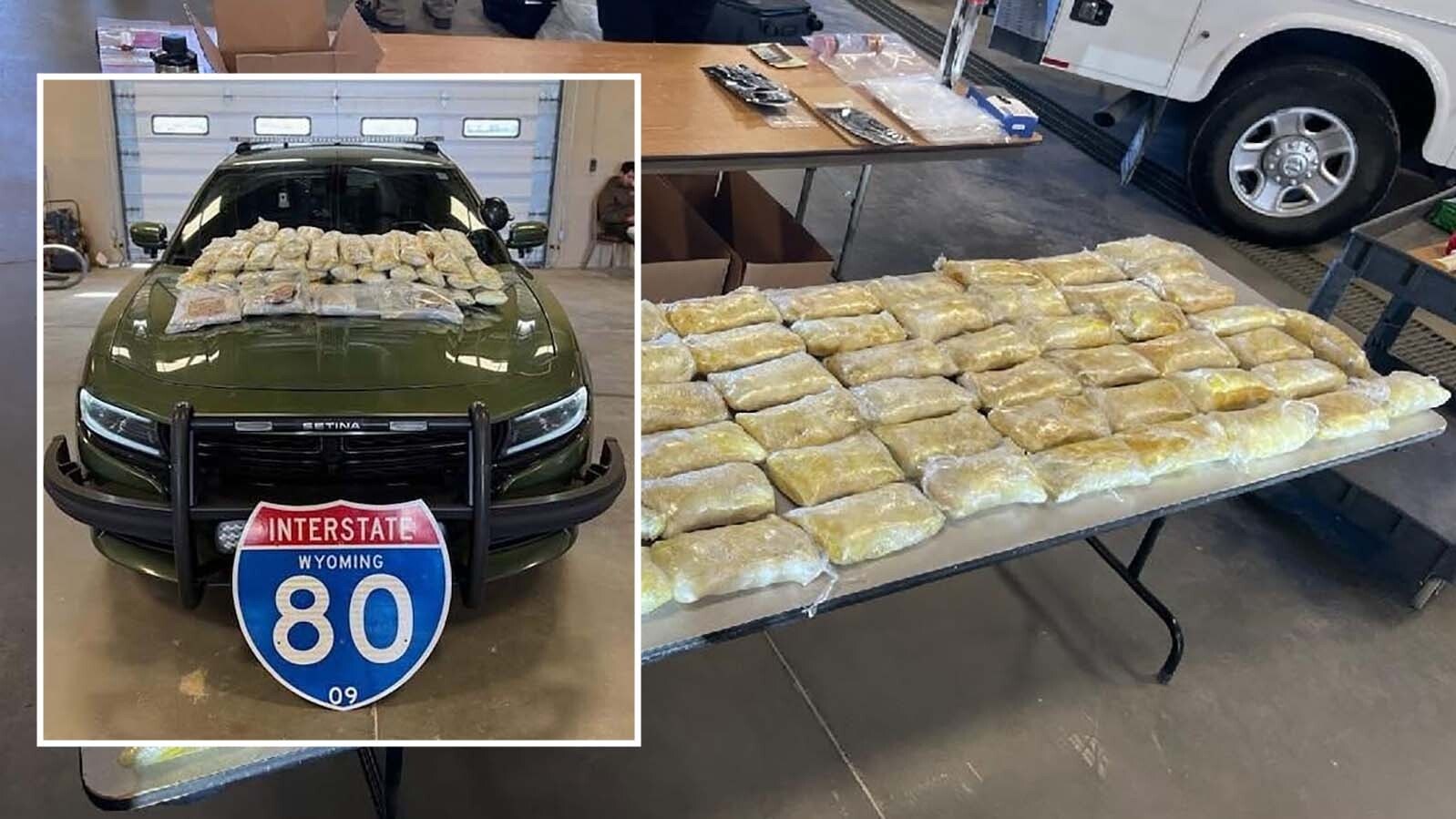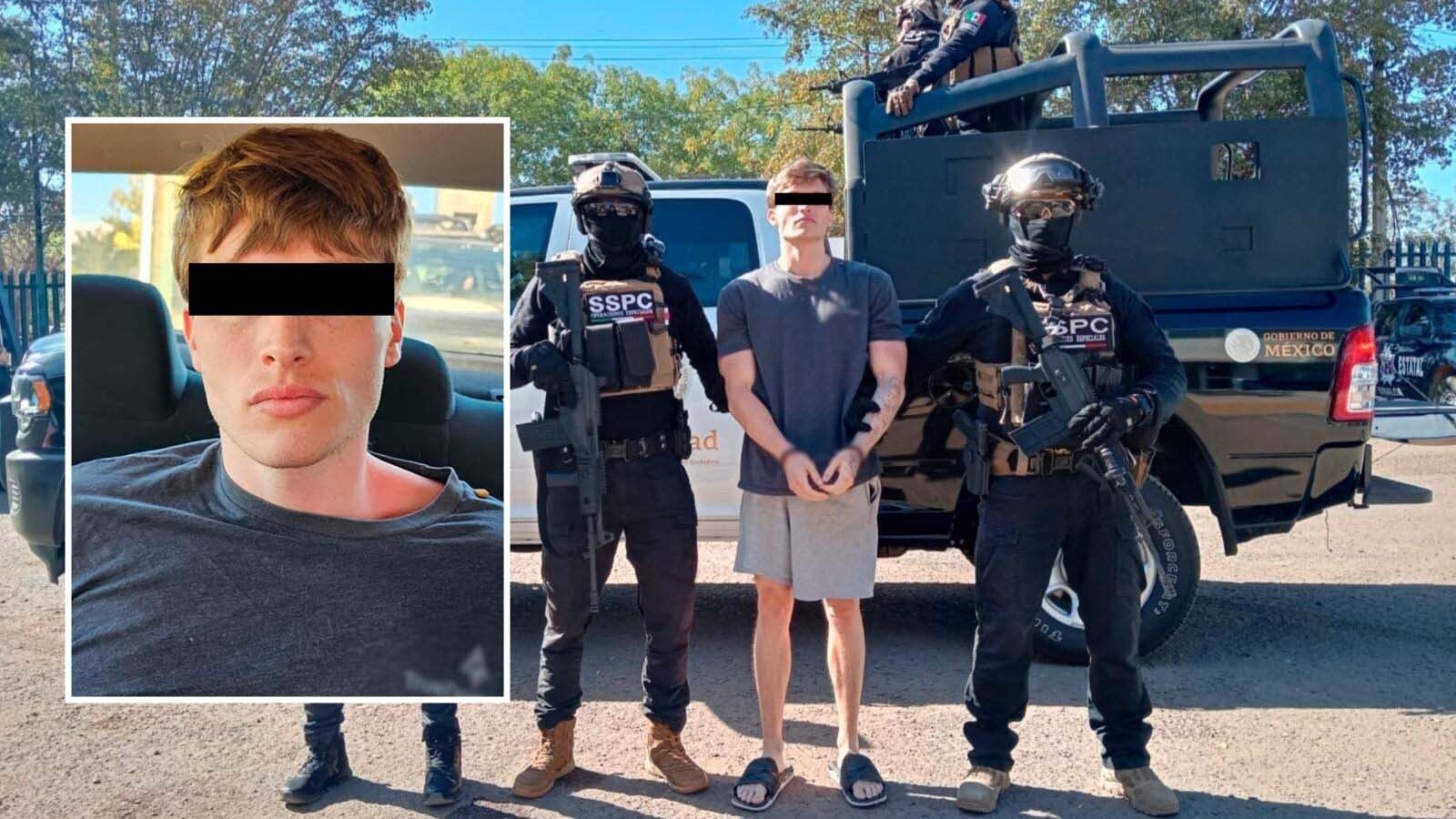A man who unleashed a violent crime rampage on Douglas homeowners while high on methamphetamine won’t get a new trial, the Wyoming Supreme Court ruled Thursday.
Solomon Preston Bolen, 43, is now serving 30-40 years in prison for shooting through the legs of two hunters with one bullet, stealing guns and trucks, and breaking into Douglas homes in late 2021.
He appealed to the Wyoming Supreme Court, arguing that his attorney didn’t serve him well enough at trial, his trial judge should have let the jury consider whether he was too “crazy” to be guilty, and that his prosecutor committed double jeopardy by charging him with both aggravated assault and attempted murder from the firing of one bullet.
The Wyoming Supreme Court shot him down on all three arguments in its Thursday order.
Hyperactive
Bolen drove to Wyoming from the northeastern Colorado plains town of Sterling with his girlfriend and their young son Oct. 5, 2021, to visit a couple’s home in Douglas, the order says.
Bolen had lived with this married couple five years earlier and used to date the man’s daughter.
Bolen used meth all night and arrived at the couple’s home upset and hyperactive. He claimed his ex-girlfriend was harassing him. He also called Converse County deputies to the area and made “disjointed and erratic” claims about sex trafficking, prostitution and theft crimes he believed were happening back in Colorado, the order recounts.
The two deputies figured Bolen was on drugs and told him they’d forward his report to the appropriate Colorado authorities, but Bolen became agitated and asked them to leave, the order says.
Bolen then stole his male host’s truck and drove to the couple’s rental property, entered the home and stole guns and binoculars from the couple’s tenant. Then he drove to a neighboring ranch, where the owners allow guests to hunt on their ranchlands.
Brothers Richard and John Cleary, and their friend George Heger, all from California, had stayed in a trailer on the ranch and were packing up their camp to go home that day. Bolen approached the three on foot, says the document.
At first, Bolen introduced himself and talked casually with the hunters. But then he started asking who was inside the trailer; if someone was inside the trailer, and if he could look inside the trailer.
The hunters thought these questions were strange. They told Bolen he was trespassing and needed to leave.
“I don’t give a f***,” said Bolen, storming off. “It’s going to be getting federal here in about 10 minutes.”
Truck Catastrophe
The men heard a vehicle roar to life and watched Bolen speed down the ranch owners’ driveway toward their home in the brown truck.
The hunters decided to follow Bolen in their own truck to make sure he wasn’t about to do some harm, says the order. John Cleary was driving, Heger was in the front passenger seat and Richard Cleary was in the back seat.
At the ranch house, the men saw the brown truck parked in front of the house and the front door open about a foot. They parked next to the open door and just then, Bolen sprang out of the door aiming one of the stolen rifles at them.
The hunters tried to escape, but as they drove around the circular driveway, Bolen shot at them.
The bullet entered the front passenger door of the truck and passed through Heger’s lower left leg, shattering both his tibia and fibula and ripping through his soft tissue, arteries and nerves. The bullet then passed through both of John Cleary’s legs before becoming embedded in the driver’s side door. The bullet shattered John Cleary’s lower tibia and broke the fibula on his right leg.
The Getaway
Cleary was able to drive down the driveway and the men took cover behind some hay bales.
Bolen left the ranch home then, drove across the hay field and returned to the home of the couple he’d originally gone to visit.
“I just shot someone,” Bolen told his girlfriend when he got there. “I don’t care if they bleed out.”
He stayed at the home for 10 minutes before leaving in his male host’s truck.
Heger called 911, meanwhile, reporting two people had been shot by a “crazy black male.” Bolen would later try and fail to use that descriptor phrase as evidence that he was not guilty by reason of mental illness.
Deputies converged on the scene, encountering Bolen as he drove the green truck away from his hosts’ property. Bolen tried to get away, but failed and was arrested.
Deputies found a yellow, meth-crusted straw in Bolen’s pants pocket while searching him, says the order.
Every Waking Moment
An ambulance took John Cleary and Heger to the Converse County hospital, and they were later flown to a hospital in Loveland, Colorado.
With both legs shattered, Cleary wouldn’t walk again for four months. He was still in pain at Bolen’s August, 2022 trial, according to the appellee brief in this case.
Heger could have bled out before the ambulance arrived had not Richard Cleary applied a tourniquet. He underwent four surgeries in Colorado and was hospitalized for five weeks. He was on crutches by Christmastime and remained on them for seven months. By the trial date, he was in pain with every waking moment, says the appellee brief.
That’s Because He Was On Meth
The prosecutor charged Bolen with 16 counts (later dropped to 15) that included three attempted second-degree murder charges, two counts of aggravated burglary, and a smattering of other robbery, property destruction, eluding and drug theft charges.
Bolen pleaded both “not guilty” and “not guilty by reason of mental illness.”
The latter plea is unique. It shifts the burden of proof onto the defendant to show the jury that he’s not mentally reasonable. But a court need not ask the jury if the defendant seems too mentally incompetent to behave within the law if the court doesn’t see enough evidence to put that question forward in the first place, says the high court’s order.
Dr. Renee Wilkinson examined Bolen from the Wyoming State Hospital and concluded that he was psychotic during his crime spree, but he caused his own psychosis with self-induced intoxication.
Wyoming defendants can’t be found not guilty for mental incompetence if their mental incompetence was primarily self-induced.
Wilkinson was the only court-appointed examiner to offer evidence on Bolen’s competency-related culpability, and courts don’t allow non-appointed laymen to provide evidence toward this type of plea, says the order.
When trial came, neither Bolen’s defense attorney nor the District Court Judge asked the jury to consider whether Bolen was too mentally ill at the time of the crime to be found guilty.
In his appeals, Bolen claimed the judge erred there and his attorney did him a disservice.
The Wyoming Supreme Court disagreed on both claims, saying there wasn’t enough evidence to merit sending the psychosis question — which the Legislature, not the Constitution, has created — to the jury.
The Good Strategy
Bolen’s attorney didn’t prejudice him by not doing that, the majority opinion says.
While there’s no dissenting opinion on this case, Wyoming Supreme Court Justice John Fenn took the majority’s opinion a step further with his concurring opinion.
He was even more defensive of Bolen’s attorney, saying not only did Bolen’s attorney not prejudice him by not asking the jury to weigh in on whether Bolen was “crazy,” the attorney explored that avenue and pivoted, deciding to save Wilkinson’s testimony for other defense strategies that could better mitigate Bolen’s guilt.
Lastly, Double Jeopardy
Bolen argued that for the prosecutor to charge him with three attempted murder counts and three (differing) aggravated assault counts for the one bullet he fired violates the U.S. Constitution’s promise against double jeopardy.
The high court’s opinion counters, saying these crimes are applicable to the same action because they carry different elements.
For example, to convict a man of attempted second-degree murder, a prosecutor must show a jury that the defendant intentionally performed an act that was a substantial step toward purposely, maliciously killing a human being. But to convict him of aggravated assault (one of its variations), the prosecutor has to show the jury that the defendant caused serious bodily injury to someone, knowingly, intentionally or so recklessly as to appear indifferent to human life.
Because these “elements” or components of the two crimes are not the same, then a jury could convict a man on both crimes stemming from the same act, if the jury decides that the man fulfilled all elements of both crimes, the order essentially reasons.
The prosecutor cannot, however, pile on identical matching crimes to doubly punish the same act.





